FSD Puppy Socialization: Weeks 3 and 4
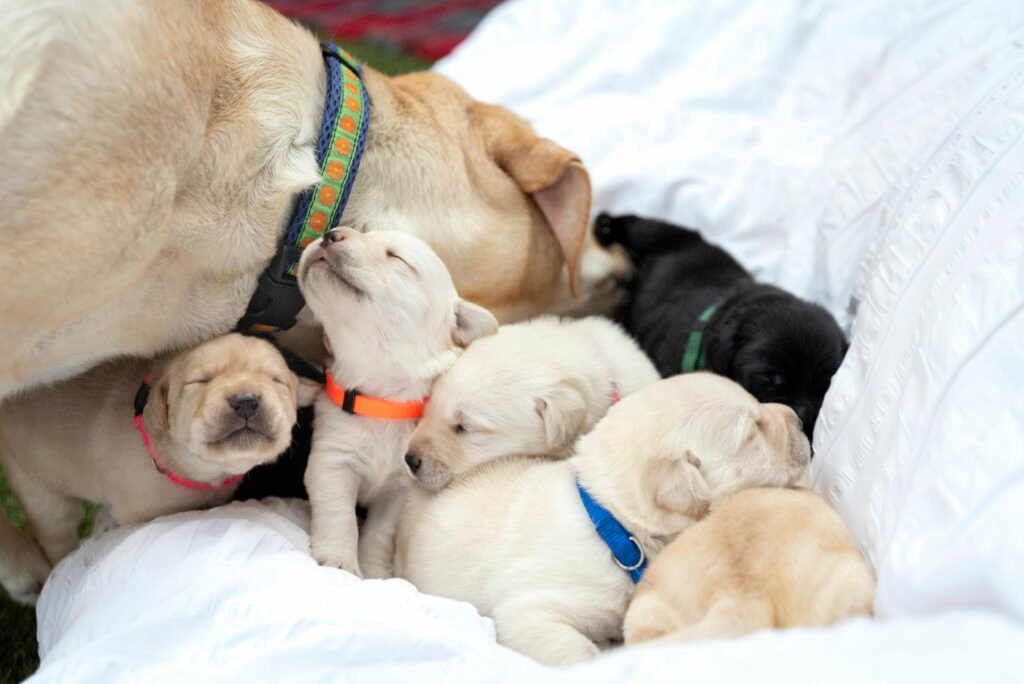
For puppies at FSD, the journey to becoming a service dog starts in our nursery from day one of their lives. In their first eight weeks, puppies go through significant physical and mental developments that shape who they become as adult dogs. During these early, formative weeks, FSD puppies with a purpose receive daily socialization and enrichment activities that foster their development and encourage the qualities we look for in FSD assistance dogs—like confidence, self-assurance, friendliness, and resilience.
In this blog, we’re diving into the milestones puppies reach at 3 to 4-weeks-old, plus the activities our staff and volunteers facilitate that help them grow into life-changing assistance dogs.
If you haven’t already read about our socialization of 1 to 2-week-old puppies, read that here!
Week 3: New Experiences
By the time puppies reach 3-weeks-old, they’re starting to see and hear a little more clearly, though the world is still somewhat fuzzy. They’re already twice the size from when they were first born and are quickly developing more hind leg strength, which helps them become more mobile and start exploring. With baby teeth beginning to poke through, this is also when we begin introducing more solid foods to their diet in addition to their mother’s milk. Additionally, they start demonstrating investigative behaviors.

To support this stage of their development, we add more variety and complexity to their den and expose them to new spaces. We might place objects like statues, irregular surfaces, scent tubes, and noise-making animatronics for the puppies to explore. Their vision and hearing gets better every day, so they’re introduced to new sounds, music, and more complex visual stimuli. If the weather is nice, they take their first trip outside with their mother to experience a whole new world!
At this age, we also implement structured activities that will be essential throughout their lives, like nail trimming. This keeps those fast-growing nails in check and helps them get comfortable with nail trims and having their paws touched. We dress the puppies in tiny sweaters during mealtime, too, which helps build their confidence, aids in their body handling, and desensitizes them to the feeling of wearing a service dog vest later in life.
By 3-weeks-old, volunteer guardian homes are able to start visiting the litter and their mother once a week. These visits continue until the puppies go to the prison program or are placed with a raiser as a tiny tot.

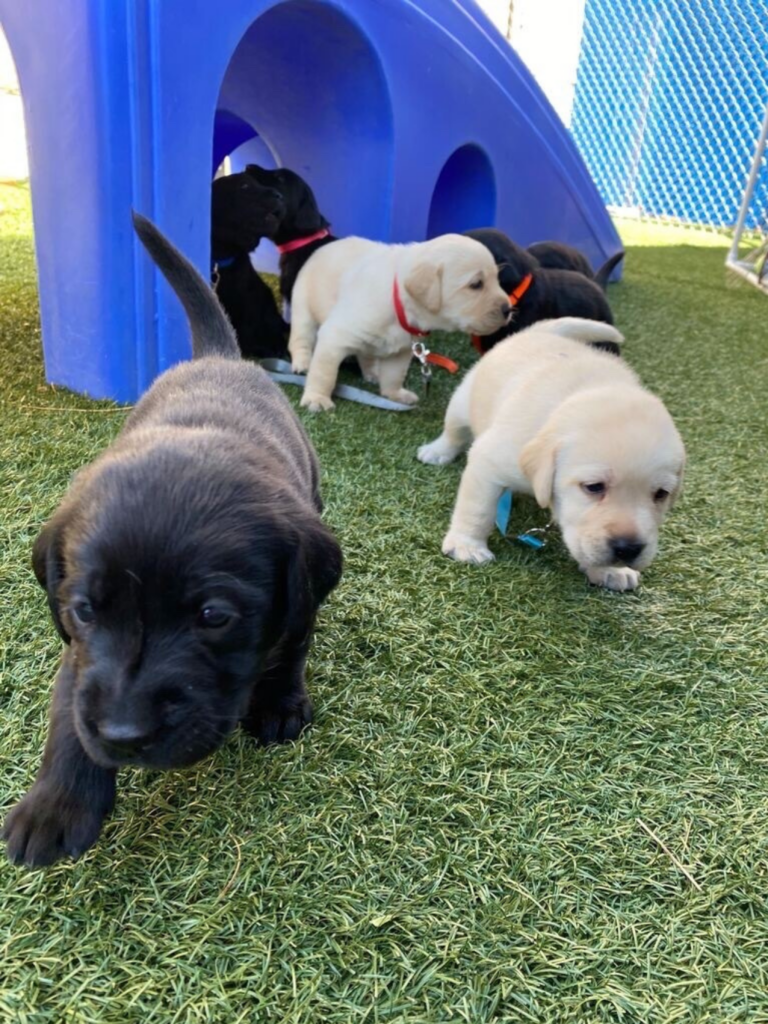
Week 4: Building Social Skills
Once they reach 4 weeks, puppies can hear and see much more clearly. They’re learning social skills through interactions with their mother and siblings—like bite inhibition, which is a puppy’s ability to control how hard they’re biting or chewing. They’re also developing the ability to follow simple cues and come when called.
Week 4 is a critical time for socialization, so we ramp up the puppies’ new experiences and stimuli. This might include exposure to more everyday items, such as sunscreen, lotion, and deodorant, as well as more outdoor time. We also help build their confidence and independence by giving them short sessions alone in their crates. At this stage, they’re even introduced to wearing a leash, and we start teaching them the basics of “sit” on cue.
For more structured activities, puppies eat their meals in a moving stroller to help them get used to the feeling of motion. They also listen to recordings of sounds they may hear in their environment, like thunderstorms, ocean waves, rainforest sounds, and children playing. Staff and volunteers conduct mock vet appointments to help the puppies prepare for check-ups and other medical procedures they may need someday.
As this blog details, the nursery is a busy place, and it takes time and extra care to ensure each puppy receives the socialization they need to set them up for success on the path to becoming a life-changing assistance dog.
Stay tuned to learn more about the socialization process of FSD puppies during weeks 5 and 6!
If this story made your tail wag, you may also like:
Contact Erin Conley at econley@

